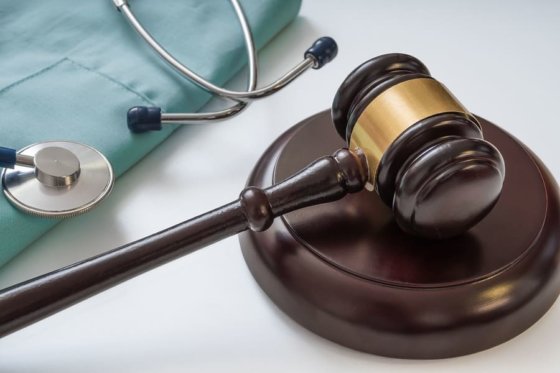When you put your care in the hands of a medical provider, you expect to receive high-quality treatment. Unfortunately, medical errors happen. Some are understandable slip-ups. But others, known as "never events," should never, ever happen. In this blog post, we discuss “never events” and how an experienced Bronx medical malpractice attorney can help victims of them.
What Are Never Events?

Never events are events that should never, ever occur in medical practice; errors or negligence so extreme that they lead to significant health complications for patients or even death. Never events often present some of the most clear-cut cases of medical malpractice for which injured patients should be entitled to recover significant compensation.
Common Never Events in Medical Practice
Never events can occur in any medical setting, from hospitals and urgent care centers to the average doctor's office. Common never events include:
- Leaving tools or supplies in a patient's body after surgery. Tools or surgical supplies left in a patient's body after surgery can lead to a number of complications, including infection, pain, perforation, obstruction, and even death. According to the New York Times, across the United States, more than 4,000 tools are reported left in patients' bodies after the procedure.
- Operating on the wrong patient. Unconscious patients are incredibly vulnerable and unable to speak up for themselves. Unfortunately, this can lead to unnecessary operations being performed on the wrong patient, which can in turn lead to significant pain and suffering for the patient. Unnecessary surgical procedures can also cause long-term medical complications.
- Operating on the wrong body part. The hospital schedules surgery on a patient’s right knee, but the surgeon cuts into the left one by accident. A patient’s diabetes makes it necessary to amputate the patient’s left foot, but the doctor amputates the right one instead. While this error is comparatively rare—estimates suggest that it could happen to as few as 1,300 patients per year, often with minor mishaps that are quickly corrected—it’s also the stuff of nightmares for patients who suffer the most severe consequences.
- Harm to mother and/or baby during childbirth. Childbirth is a relatively common medical procedure that nevertheless carries a number of risks. In a low-risk pregnancy and delivery situation where injury occurs to either mother or child, including unnecessary interventions, brain damage, or broken bones.
- Failure to provide appropriate care. In some cases, medical negligence can rise to the level of a never event. Negligence may include stage 3 or 4 bedsores as well as patients who experience extreme falls while under medical care. Failing to deliver medications on time, oxygen lines with nothing in them, or inappropriately delivered IV medication may also be classified as never events.
- Allowing a metal object to be introduced into an MRI environment. Metal objects in MRIs can cause serious damage to patients. When radiologists fail to do due diligence to ensure that these objects are not introduced to the environment, whether in the form of items in the patient's body, in their pockets, or that the radiologist has introduced to the room, it can be considered a never event.
- Improper discharge of patients who can't care for themselves. A child who is unable to object is given to a parent who no longer has custody. A patient who has experienced severe injury is released to an individual who does not have the ability to care for them. These can be considered never events since the hospital or medical care facility failed to do the due diligence necessary to ensure that the patient was properly cared for when they transferred custody.
- A patient commits or attempts to commit suicide while under the care of a medical facility. When a patient is at the point of a psychiatric break, medical providers should recognize it and treat the patient accordingly. A patient who is left unsupervised and allowed to commit suicide is often considered a never event.
- A patient is given the wrong medication. Medications can have serious side effects, especially when they're given to the wrong patient. Interactions with the medications that the patient is legitimately taking can also be severe. When a patient is given the wrong medication in a medical care facility and it leads to serious side effects, including injury or death, it can be considered a never event.
- A device is used that is known to be broken or contaminated. Broken or contaminated medical devices can lead to injury or infection in many patients. A facility that knowingly uses one of these devices has likely committed a never event.
- Adequate follow-up care isn't provided. When a patient is seriously injured or ill, she may need considerable follow-up care to ensure she recovers properly. When patients fail to receive this care and it leads to further complications, injuries, or death, it may be considered a never event.
- A patient suffers abuse in a medical setting. Patients should never suffer abuse at the hands of healthcare providers—and when they do, it is always considered a never event.
- Patients receive care from someone who is not really a medical provider. When an individual impersonates a doctor, nurse, or other care provider within a hospital setting, it is considered a never event, particularly if that individual provides treatment that is in some way harmful to the patient or patients.
Never events may be varied, but one truth remains the same: they are events that should never occur in a medical care setting. These events constitute serious and significant examples of probable medical malpractice that may require legal help to deal with appropriately.
Legal Recourse After a Never Event
Never events often involve substantial pain and suffering, increased medical expenses, and lost time at work. You may struggle to return to life after a never event, especially if it involved substantial injury that altered your long-term health. If you've suffered a never event, it’s important to know your legal options. These may include compensation for your expenses associated with your injuries as well as compensation for your pain and suffering. Consulting a lawyer can help you better understand your rights and the process of recovering compensation following your injuries.
If you’re struggling following a never event, seek legal support from an experienced professional. Email Ivan Diamond today or call (718) 588-2000 to set up your free case review.



